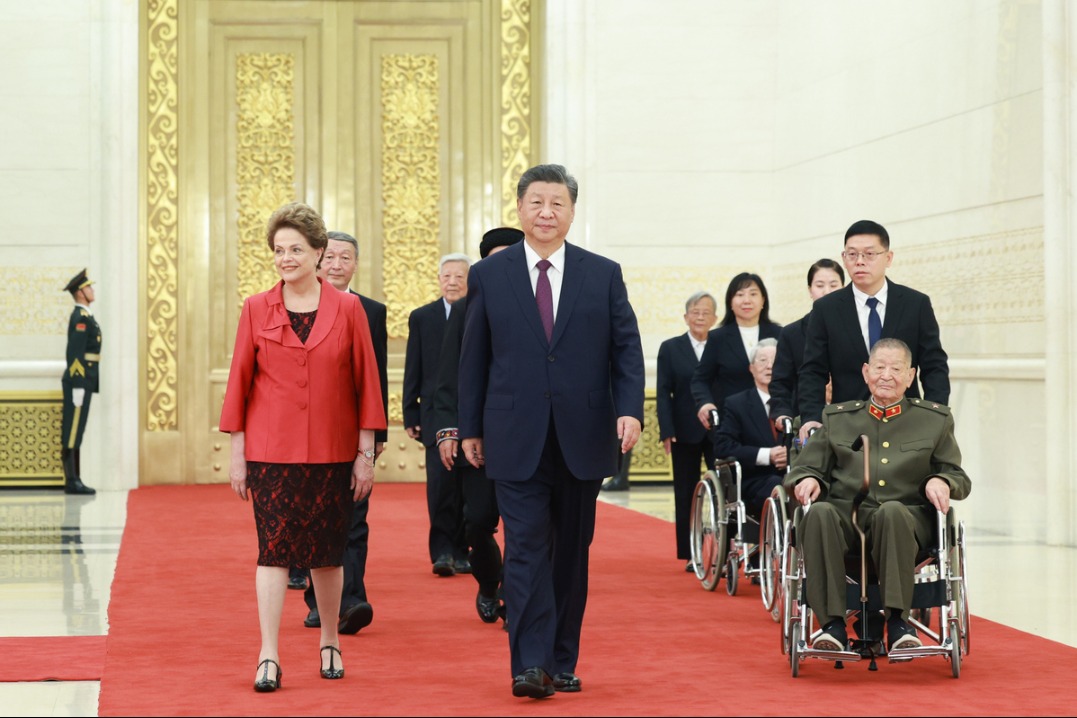Chinese market enthusiastic about emerging technologies
Practical AI adoption, feasibility remain chief challenges, but acceptance broad
By LI JIAYING | China Daily | Updated: 2024-09-27 10:07

As the development of generative artificial intelligence continues to grab headlines, more value is expected to be derived from the combined use of multiple AI techniques, which may help boost businesses with different characteristics in a more pragmatic way, said an industry report.
With the original excitement beginning to wane and early adopters reporting lower-than-expected returns on investment, GenAI is showing its limitations amid some inflated expectations, according to research company Gartner's latest report of Hype Cycle for Data, Analytics and AI in China.
Despite the current fierce competition in the field, at least two-thirds of GenAI projects are expected to be abandoned by 2025 after proof of concept due to factors such as poor data quality, insufficient risk control, rising costs and unclear business value, the report said.
"For China, it will take about two to five years for its GenAI technologies to become mature and enter a stable status of productivity," said Ben Yan, director analyst at Gartner.
Yan said the country's adoption rate of GenAI in production now lags behind global levels and is lower than originally anticipated, which is somewhat surprising.
The adoption rate of GenAI in production stood at 8 percent in China at the end of June, merely 2 percentage points higher than a year earlier, while the global average level stood at over 21 percent at the beginning of this year, Gartner said.
Lack of proper use cases, unjustifiable business value, insufficient model capability and maturity, as well as deficient corporate data AI readiness are believed to be the major challenges for enterprises to deploy GenAI in their production, the data showed.
As for the biggest challenge — proper use of GenAI in production — Yan said that state-of-the-art large language models are not necessarily always the best choice for all kinds of businesses. For example, a service robot doesn't require a programming module as most LLMs do, in which case small LLMs and mid-tier LLMs may be more practical options.
"We have noticed a clear trend from the enterprise side that their pursuit of AI has shifted from an LLM-focus to an integrated application focus that attaches more weight to final implementation," Yan said. "It is all about matching the right AI technique with the right scenario."
He said other innovations in AI technology — such as domain-specific GenAI models, multimodal GenAI and decision intelligence — are also on the rise and merit due attention.
To deliver maximum benefits and returns, business leaders are advised to base future system architecture on composite AI techniques by combining approaches from innovations at all stages of the development cycle, instead of sticking to one solution, Yan said.
However, despite the relatively low level of implementation efficiency, Chinese companies and consumers are still showing huge interest in embracing AI.
According to a recent Vodafone Business report, 65 percent of surveyed Chinese companies firmly believe that the application of new technologies can help them overcome business challenges, exhibiting a stronger confidence in emerging technologies compared with other markets in the Asia-Pacific region.
"Chinese companies have shown distinct enthusiasm in adopting emerging technologies like GenAI, enabling them to build a competitive edge on the global stage," said Eliza Kwok, senior vice-president and head of North Asia at technology communications company Vodafone Business.
"AI technology has become a catalyst for business trust in the Chinese market. If used wisely and effectively, it can help narrow the trust gap between business operators and consumers," Kwok said.
At the consumer level, 35 percent of surveyed customers in China say the use of GenAI will increase their trust in an organization, compared to customers in Singapore (23 percent) and Australia (19 percent), the Vodafone Business report said.
In addition, the majority of customers in China (71 percent) demonstrate higher levels of trust and confidence in the way businesses use new technologies, far higher than that of consumers in other Asia-Pacific markets such as Singapore (45 percent) and Australia (34 percent).
"Compared with other Asia-Pacific markets, Chinese consumers are more open to AI technologies," Kwok said, "Your consumers may be more tech-savvy than you think."
While the market has shown huge enthusiasm for AI, companies should also deploy such new technologies in a more responsible way, prioritizing issues such as data transparency and security, in order to enhance consumer trust and achieve long-term sustainable growth, she added.
























